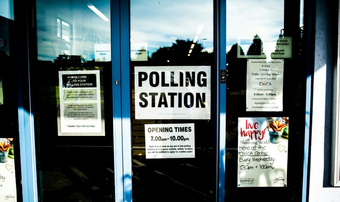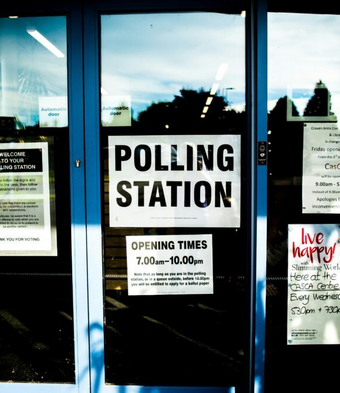Assessing Keir Starmer's six new milestones

On Thursday the Prime Minster launched six milestones – or measurable deliverables as some in the Government have labelled them – as part of his ‘Plan for Change’. These are meant to signal the Government’s priorities and to act as targets which Labour will be judged against at the next election.
The six milestones are
- putting more money in the pockets of working people;
- building 1.5 million homes and fast-tracking planning decisions on at least 150 major infrastructure projects;
- treating 92 percent of NHS patients within 18 weeks;
- recruiting 13,000 more police officers and special constables in neighbourhood roles;
- making sure three-quarters of five-year-olds are school-ready;
- achieving 95% clean power by 2030.
Critics have suggested that this is a re-launch after an inauspicious start to the new Government’s term, while many have commented on the confusion between these milestones and previously announced foundations (three), missions (five) and first steps (six). That’s a lot of commitments and different statements to remember!
Positively, these six milestones are clear transparent targets which voters will be asked to judge the Government by – or at least this is how the Government will judge itself as being successful or not by the time of the next scheduled election in 2029. They are clear, and signal what the Government itself sees as a priority, and what they expect to change over the next few years. Or at least that is the intention.
While the Bible does not set out ‘measurable deliverables’ like the Government, or comment on NHS waiting lists, new home building targets and police recruitment, I do think it affirms some of the intentions behind these milestones. But it also provides a warning with regard to their limitations.
Firstly, the positives.
The Bible is clear that good government is an integral part of a good society. Government and our leaders should help us lead ‘peaceful’ lives.
This begins with competence and integrity, but does not stop at that. The apostle Paul wrote that authorities should restrain evil and promote good. What that looks like, and how big the State’s role is in doing so is a matter of political and personal debate. Yet it must surely include every person being able to provide for their material needs, to live in safe communities, and to have access to things that are essential to a basic standard of life. These are things that honour the dignity of every person made in the image of God.
I believe that the Government would argue this is what the milestones represent – the basic things UK citizens should expect to be able to achieve or have access to. If these milestones lead to better work, safer communities, creation care, stable homes, they will have been useful tools that help deliver things that the Bible sees as good for every person to flourish. We should never forget that God does care about our day to day lives and such tangible, material things, and he hates injustice, pain, and suffering.
Good government is also accountable.
The Prime Minster has now set out clear measurable milestones for him and his government to be judged against.
Some of the language used in previously announced missions, first steps, and foundations was vague. They were broad commitments. These milestones have figures attached and are more specific. Experts suggest some will be easier than others to achieve. Some are predicted to happen come what may, while others are considered stretching even with a good wind behind Government action. There might also be a legitimate question about what is not included in the Prime Minister’s list, and do the six milestones reflect what the majority of people want or need? Nevertheless, they are clear, and it should be obvious whether the Government has successfully achieved its target by 2029.
There are countless examples in the Bible that demonstrate the correlation between bad leaders and their lack of accountability to God and the welfare of their people.
But I also suggest that we should be open and realistic about the limitations of these new milestones.
The Government’s approach reminds me of an app I have just downloaded onto my phone. It’s meant to help me lose weight by setting goals for how much I exercise, eat, and in theory, how many pounds I should lose every week.
There are three problems with my app that I believe are also relevant to the Government’s milestones.
First, having a target does not equate to action. My app looks good on my phone. It is a statement of intent. But right now it is only that. I have not followed its advice on exercise or diet and so it has started to tell me that I am unlikely to reach my target weight!
Perhaps more profoundly, as a follower of Jesus, my desire is to be more like him. I can set myself spiritual disciplines and goals each day, but if I do not take action, then they are simply good intentions and do not lead to meaningful change. Similarly, James writes that faith without deeds is dead. I can say I submit to Jesus as my saviour and want to follow God’s word faithfully, but if I don’t then do it, what does that say about my faith?
The Government’s milestones may suggest good and commendable things about its priorities, objectives, and aspirations – but what are they now going to do to realise them and how will they go about doing so?
The second danger of these milestones is that they become an end in and of themselves – not a means of achieving something bigger and greater.
This risk can take two forms.
With my fitness app I can become obsessed with walking 10,000 steps a day. How I go about doing so is not important to my app – its just about hitting the goal. History is littered with examples of governments setting targets that quickly become more important than what they are trying to achieve.
My first job was at a think tank where I researched the history of how governments funded social housing, healthcare and schools. The history of social housing in the twentieth century was one of rapidly declining quality of homes and communities, because these things were sacrificed in order to meet time, numbers and cost targets.
I want a health care system that is not just efficient, but that is also caring. Not one that dehumanises me because it needs to process my case as quickly as possible.
But an even bigger danger is that milestones and targets can never encompass all of what is important.
So just as my fitness app can be an aid in improving my exercise regime (or lack of) and diet, it cannot meet my emotional or spiritual needs, let alone other aspects of my physical health.
So too with the Government’s milestones.
Helping make people financially better off, building more new homes, recruiting more police, and producing more green energy are means of achieving good things. We know that God, through his word, takes these everyday things seriously. But they are only a part of what it means to have a good life.
Milestones provide helpful targets and can alleviate some of the barriers to a good life, but they do not, in and of themselves, actually provide a vision for what one looks like.
And that is my third concern about these milestones. They do not tell me much about what the Government’s vision for a good life is, beyond making things better when it comes to some - albeit important – basic, material concerns.
The Bible does set out a vison for what a good life looks like. It includes being able to provide financially for our family’s needs, safe communities, and even good housing. But it also involves us loving our neighbour before ourselves, being compassionate, and living in communities that speak truth with grace. Where even introverts like me understand that we are built to be in relationship with one another and our Creator.
A good life starts with a vision for what good looks like – one uniquely set out in the Bible. It includes good government, but a good life can never be fulfilled by a government or leader alone.
Just as my app can only go so far in helping me lead a good life, the same can be said of the government’s milestones. Neither milestones nor apps mean anything without action: we need to understand that they are only part of a bigger – and better – story.






